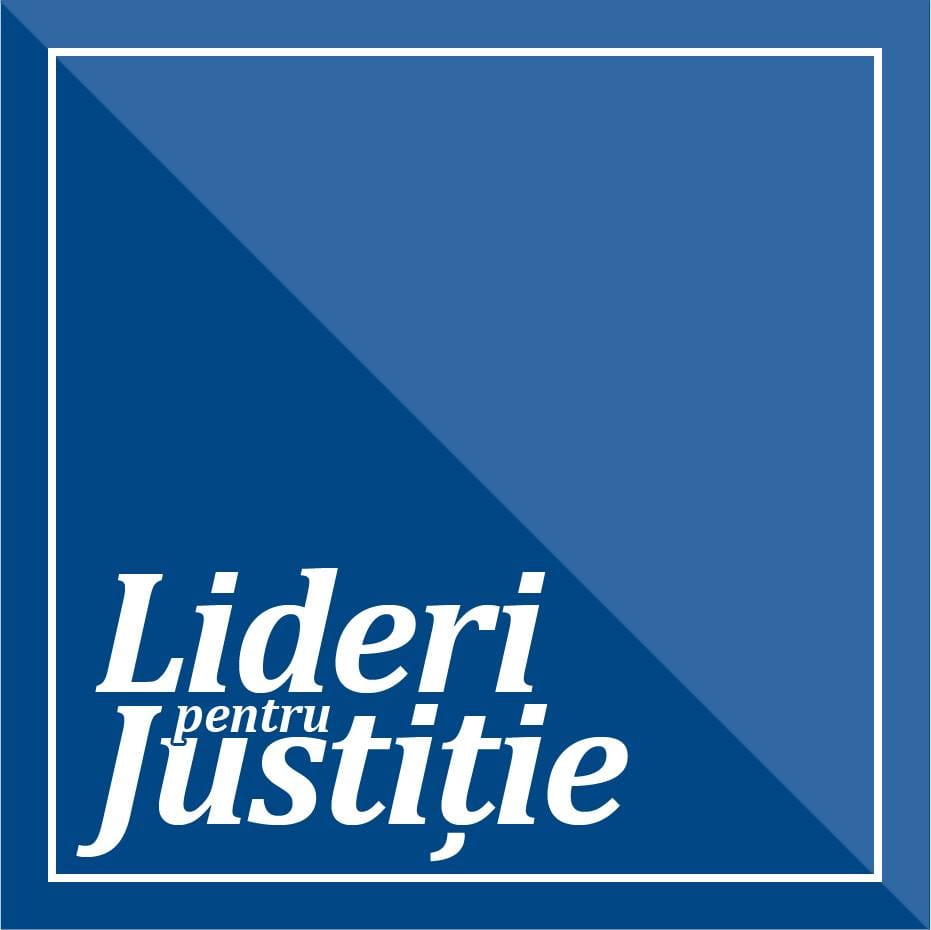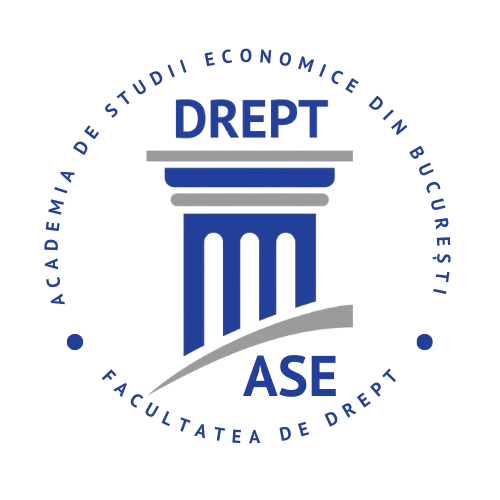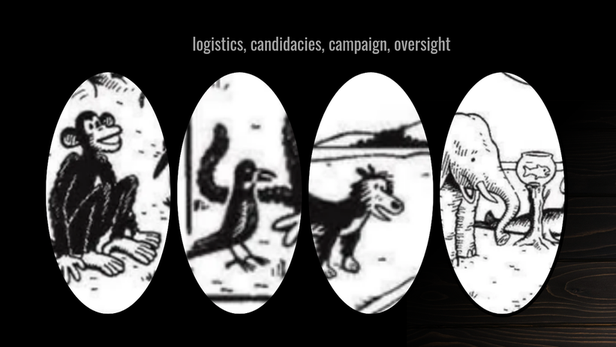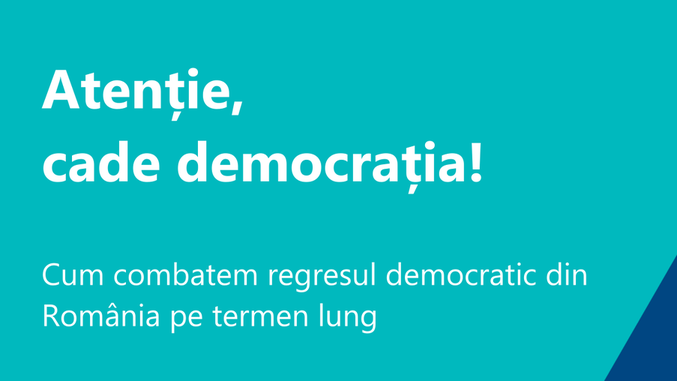An old Romanian proverb claims that a sign of ultimate wisdom lies with the ability of accommodating both a goat and the cabbage it craves… It would be a sign of genius and great skill to also accommodate the wolf that craves the goat, but I’m not sure we can get that far… While Justice should be shielded from Politics, in the true vein of separation of powers, Romanians have been taught, since the adoption of the 1991 Constitution, that’s not always the case, not always desirable, not always possible 🙁 You’d think that the selection and appointment of a chief anti-corruption prosecutor should be a prerogative exclusive to the Justice system?!? Well, it depends…Is a prosecutor rather an agent of the Executive branch, called to uphold public order and public values, to the benefit of the people? Or rather an independent magistrate, within the Judiciary, called to qualify the facts, assess the applicable norms, and enforce the law? Romanian prosecutors prefer (and I do, too) that their profession evolves in the second direction, but most of the constitutional and legal framework keeps them within the first. Thus, since 2005, when the procedure established in 2004 was amended, a Chief Prosecutor in Romania is being appointed by presidential decree, upon nomination by the minister of justice, while the Supreme Council of Magistracy, interposed, is reduced to offering just a simple assessment of the nominee, non-binding for the Presidency. Enters stage Mr. Morar‘s problem:
Better said, the problem of the Romanian politicians with Mr. Morar and his DNA–the anti-corruption prosecution. Today, Mr. Morar’s 3-year mandate as head of DNA came to an end. His mandate could be extended, only once, for another 3-year term. His supporters point to Mr. Morar’s will and determination in fighting corruption, opening investigations, biting at, and chasing after, the big fish. They do agree not all is rosy, but emphasize the hurdles that Parliament erected in protecting some high officials targeted by DNA investigations, and the incompetence or malevolence identified with some of the judges. Some NGOs, some politicians (mostly Populars), some media (including the Economist), and the European Commission (Mark Gray and the Report of July 23) openly supported the extension of Mr. Morar’s mandate, while President Băsescu may have uttered that he wouldn’t sign an appointment decree on any other name.
The opponents of Mr. Morar’s extension may be differentiated into those who really oppose him, and those who see no point in hanging on a name, a providential person… Other NGOs, other politicians (mostly Socialists), and other media (somewhat affiliated with the Socialists’ junior coalition partner) openly accused Mr. Morar of manipulating corruption investigations to the benefit of President Băsescu’s political aspirations and/or clientele. [The Socialists apparently went as far as to threaten a parliamentary motion to dismiss minister Predoiu, if he were to recommend an extension of Mr. Morar’s mandate.] Others, yet, question the criteria used for assessing Mr. Morar’s performance–at least against his predecessor’s (Mr. Amarie), if not against specific benchmarks–and counterpoise their disappointment vis-á-vis no substantial results in a plethora of cases that never encountered parliamentary hurdles and/or never got to see the inside of a courtroom.
[Personally, I don’t think I have enough information to make up my mind whether Mr. Morar should be kept in or kicked out. I wish I could’ve seen an assessment report (probably from the CSM) focused on the internal management at DNA, rather than on technical, legal or procedural matters. One argument in his favor, coming from a colleague within TI-Romania, relates to allowing Mr. Morar’s managerial team to complete the investigation cycle on the big fish cases, from A to Z, namely from opening the investigations to concluding the trial procedures. The immediate downside of this argument, however, is that investigations should last 6-12 months, rather than 2-3 years, but I’m ready to concede that high-level, “octopus” corruption cases are hard to handle, evidence and indict. On the other hand, if Romania is really incapable of identifying another prosecutor to fill this job–professionally qualified, morally impeccable, resiliently determined to fight corruption, and fearlessly resolute to catch the big fish–then I think we’re in deeper trouble than anybody ever fathomed 🙁 ]
To my mind, part of the problem owes to the system of appointment. Since the minister of justice and the President are political posts, and they “own” more than two-thirds of the current appointment procedure, it’s only natural that the entire process would be open to political debate. Especially if they come from competing political veins [President Băsescu has close ties with the Populars], the seed of political conflict is already sown–and moderation or restraint in politics is not a well-known feature in the Balkans–or is it?!? Another part of the problem owes to over-exposure in the media–not necessarily of this particular instance/topic, but of the entire DNA activity: too many leaks to the press; too many talk-shows trying people on the TV screens; too little concern for protecting investigations, evidence, witnesses; complete disregard over the presumption of innocence… But these are the ways of the media competing for ratings and market shares 🙁
The net result is a rift down the middle of Romanian society, and a very uncomfortable position for minister Predoiu. Under these circumstances, Mr. Predoiu yesterday tried (kinda awkward, including the PR perspective) to pull the old goat and cabbage trick on everybody: Would it be possible to
- observe the current procedure, but also buy some time?,
- appease domestic politicians, but also dance to the tune being played in Brussels?, as well as
- increase the importance of the CSM assessment, but also pass the buck in the decision-making process all the way up to the President?
I thought his best way out of this predicament would’ve been to send out a list of three alternative nominees, Mr. Morar included. Then, the CSM could’ve recommended that some nominees would not be fit for the job, while the President would’ve made the final call. But Mr. Predoiu simply avoided the risks incumbent with such course of action, and made a different move, altogether:
Mr. Predoiu yesterday nominated Ms. Monica Şerbănescu for the position of Chief Anti-corruption Prosecutor (head of DNA), thus alleviating the Socialists’ threat. [By the way, Mr. Predoiu is not a member of any political party, though he is a libertarian, with an affinity for the Liberals that now lead a minority Cabinet in coalition with the Hungarian minority.] At the same time, Mr. Predoiu announced the creation of a new position for Mr. Morar, to be promoted (or otherwise kept in the loop) as Romania’s High Representative in Brussels, charged with the coordination of the Cooperation and Verification Mechanism on matters related to justice reform and anti-corruption. Thus, minister Predoiu may alleviate the domestic concerns of the Populars, and maintain a favorable opinion in Brussels. Reportedly, before making this bold decision, Mr. Predoiu consulted only with the President and the Prosecutor General. [Of course, my analysis starts from the assumption that a proper solution is being sought, but one may also see it as cynical entrapment…]
Will it work?!? To begin with, Ms. Codruţa Kövesi, Romania’s Prosecutor General, extended Mr. Morar’s post for 90 days, by administrative decision, in order to prevent a situation whereby DNA would’ve remained hands-tied until the entire procedure is completed. Then, Mr. Morar is reported to have refused the Hi-Rep position on CVM [though that’s a job even I would like 😉 ]. Ms. Şerbănescu will have to face not only a skeptical and divided public, but also the CSM assessment–if she fails, minister Predoiu may have bought some time before making another nomination [and with elections knocking on the door, that could be really wise of him]. If President Băsescu really agrees with this arrangement, Mr. Morar accepts the Hi-Rep post, and DNA gets a new chief prosecutor only after the elections, I’d say that, ultimately, Mr. Predoiu may have managed to check all three dilemmas, at the same time–except, perhaps, the attempt to increase the CSM‘s role in the process 🙁
Oh, but the Hungarians, Socialists, Liberals and Conservatives plan to submit a Bill to Parliament, to the effect of reverting to the 2004 procedure for appointing the Attorney General and the Chief Prosecutors (anti-corruption and anti-terrorism). That Bill would most probably eliminate the role of the justice minister, and place with CSM the entire responsibility of nominating and assessing candidates for these posts, while the President would maintain the appoinment decree. Of course, it would be nice if CSM could be reformed, in the process, but that would be too much to hope for… Then, we also have to find solutions regarding the Codes, the Integrity Agency’s budget, the third Anti-corruption Strategy, and put an end to the MCV and the safeguard clause… Provided that my assumptions hold water, I really think it could work, I hope it will work, and I urge all stakeholders to act in concertation, leaving political bickering aside…
Back in 2004, I thought that business associations and trade unions should join this effort, and I’m glad to see that more people now converge with this opinion: Success in justice reform and anti-corruption is paramount to Romania’s development and sustainability, simply because poor justice means poor business!, and if justice is poor, jobs are insecure! Indeed, more goats, more cabbages, more need for more wisdom… But, hey, if there is a will, there’s always a way!






